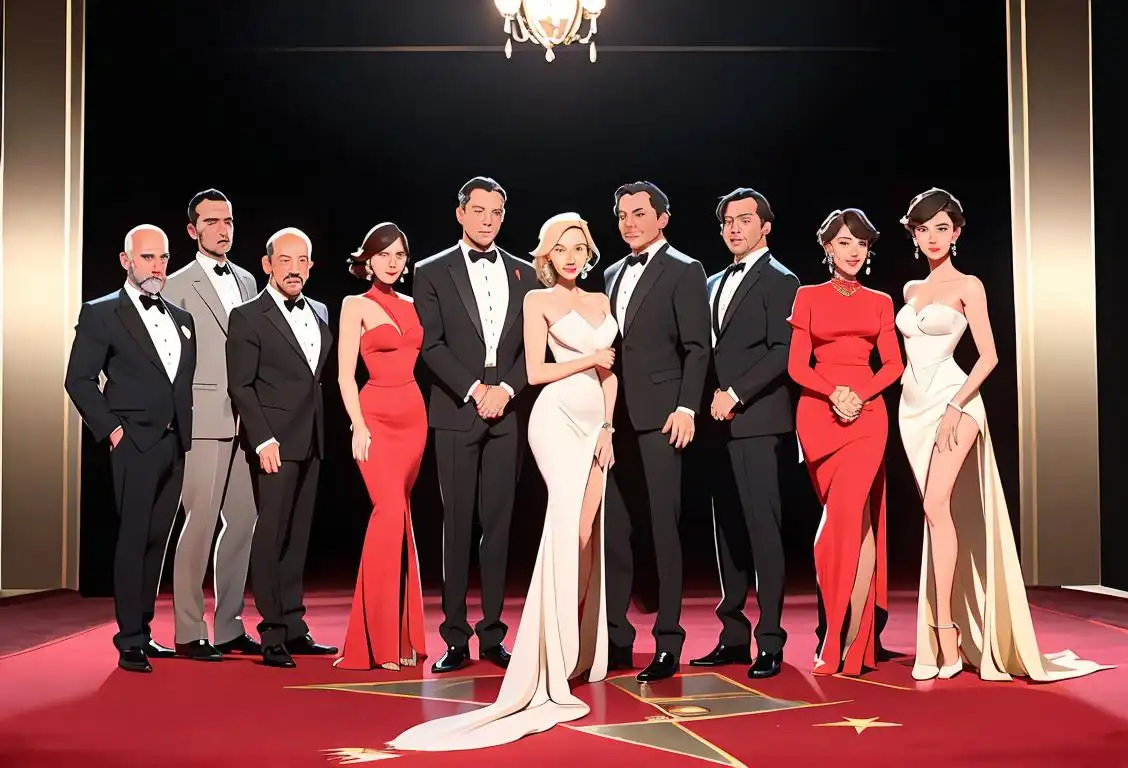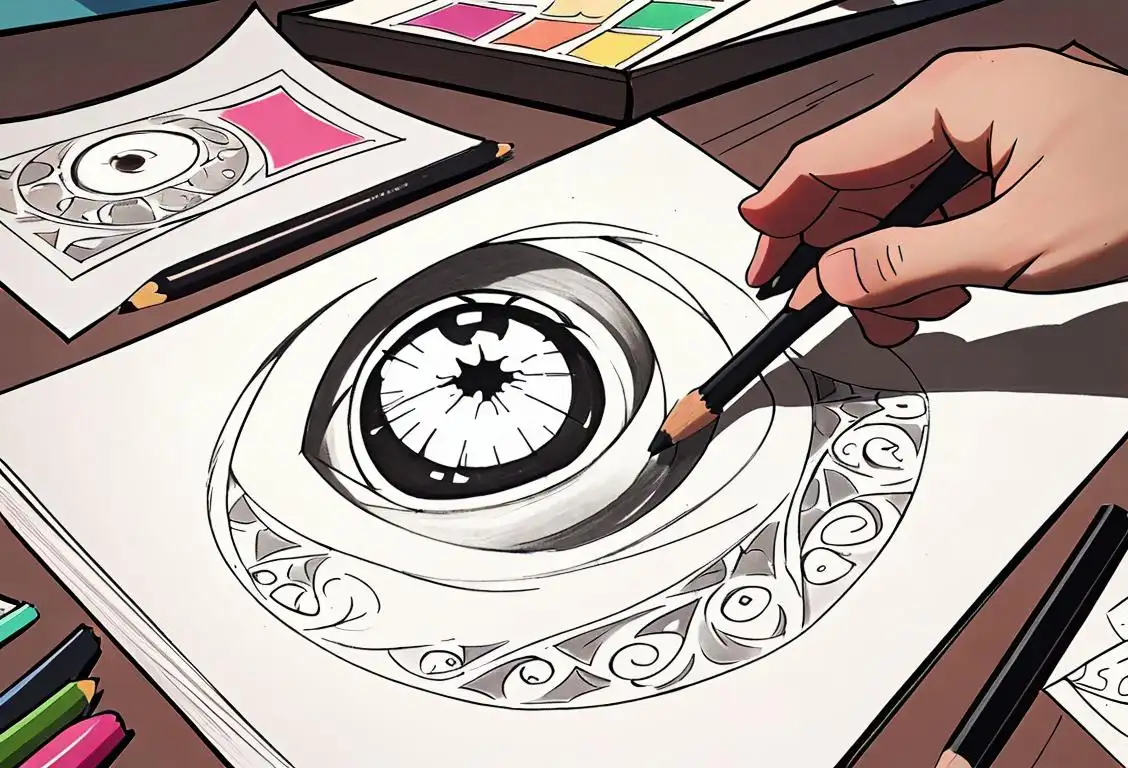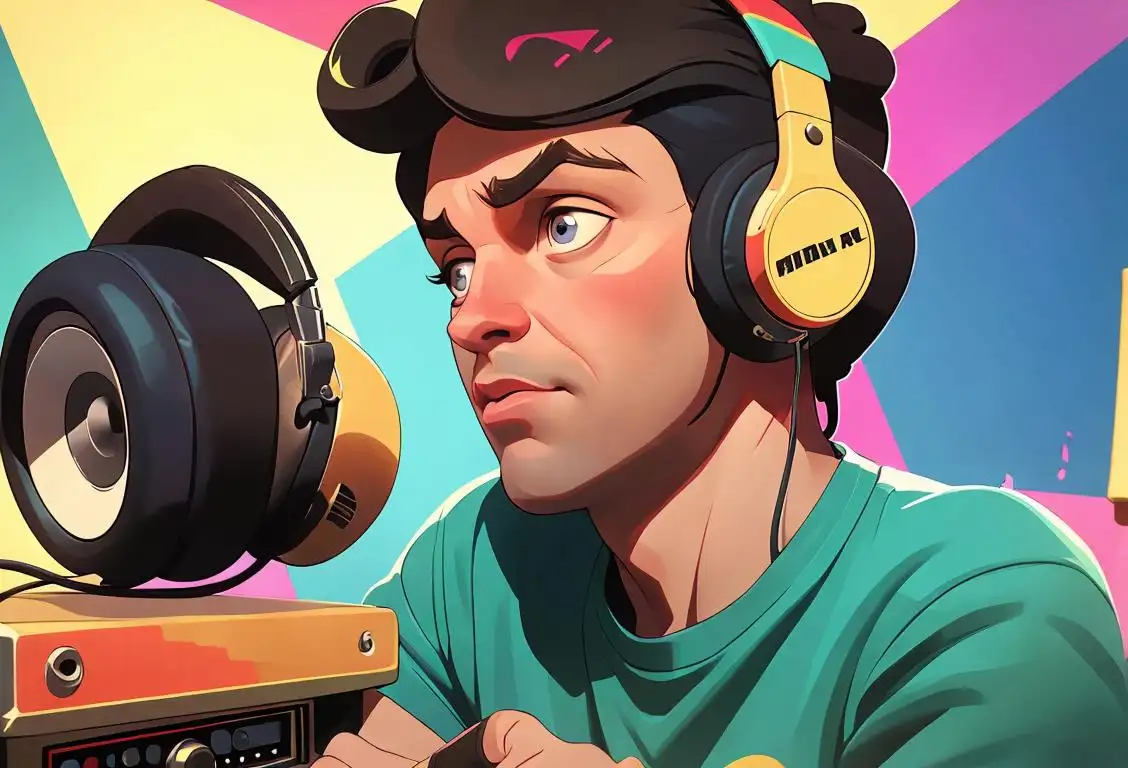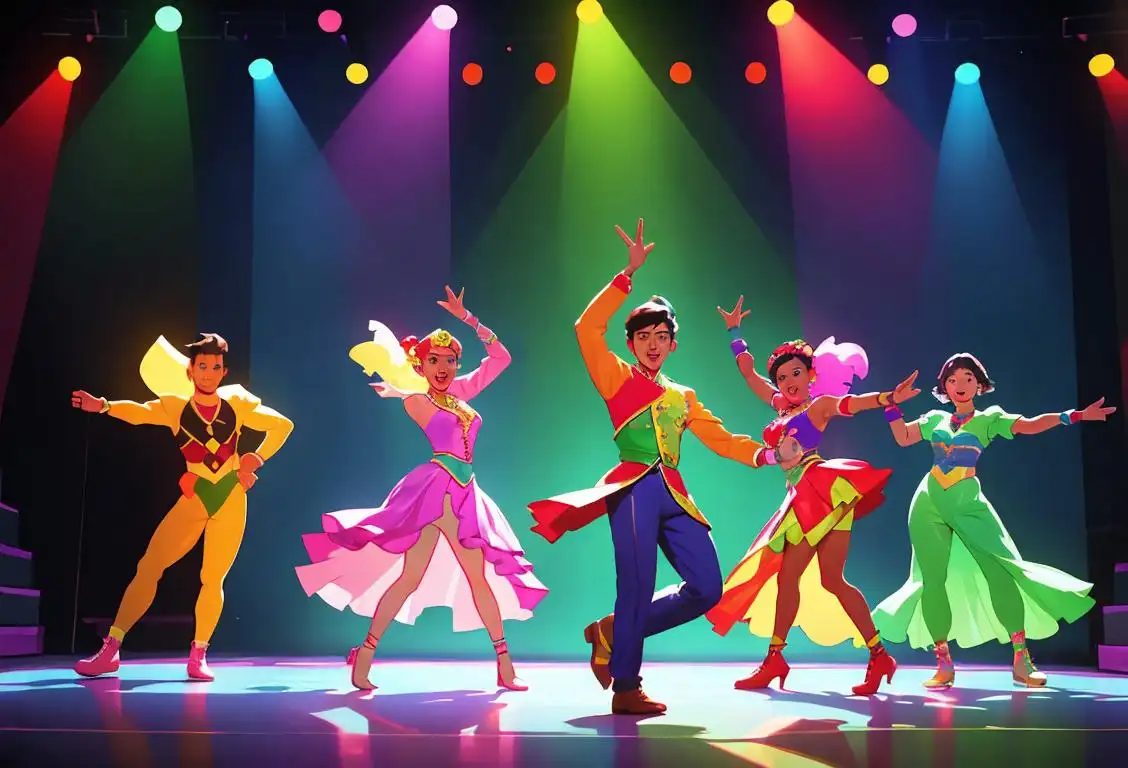National Musicians Day

Welcome to National Musicians Day! It's time to celebrate the talented individuals who bring the magic of music into our lives. From classical maestros to rock legends, this day is dedicated to honoring the incredible musicians who have shaped our world. So grab your air guitar and let's dive into the tuneful history of this special day!
When is Musicians Day?
It's national musicians day on the 24th January.
A Harmonious History
National Musicians Day is a harmonious ode to the musical maestros and virtuosos who make our hearts sing. Founded on the belief that music has the power to heal, inspire, and connect people, this day is a celebration of all genres and all those who create and appreciate music.
Strike Up the Band
Whether you're a fan of pop, jazz, classical, or heavy metal, there's a musician out there who's struck a chord with your soul. National Musicians Day is the perfect opportunity to support your favorite artists—buy their albums, attend their concerts, and spread the love on social media.
A Song for Every Occasion
Music has a way of capturing the essence of every moment in our lives. Feeling down? There's a song for that. Over the moon with joy? There's a song for that too! National Musicians Day reminds us to embrace the power of music, as it has the ability to uplift us, bring us together, and make us dance like no one's watching.
Let the Music Play
On this special day, music is the soundtrack of our lives. So unleash your inner rockstar, dust off that old guitar, or turn up the volume on your favorite playlist. Dance like nobody's watching, sing like nobody's listening, and celebrate the incredible gift of music.
History behind the term 'Musicians'
2500 BCE
Birth of Musical Performance
In ancient civilizations such as Mesopotamia and Egypt, musicians emerged as talented individuals who entertained and enraptured audiences with their musical abilities. These early musicians played various instruments such as drums, flutes, and harps, enhancing cultural and ritualistic events. Music became an integral part of ancient society, paving the way for the development of future musicians.
Ancient Times
Birth of Music
Music has been a part of human civilization for thousands of years, with evidence of musical instruments dating back as far as 40,000 years ago. In ancient times, musicians played a variety of roles in society, providing entertainment, accompanying religious rituals, and even acting as healers through music. These early musicians were skilled in playing instruments such as flutes, drums, harps, and lyres.
8th century
Origin in ancient civilizations
The term 'musicians' traces its origins back to the 8th century, when the concept of music and performances began to emerge in ancient civilizations. In cultures such as Mesopotamia, ancient Egypt, and ancient Greece, individuals who played instruments or sang were referred to as musicians. They played a vital role in religious ceremonies, entertainment, and cultural events, captivating audiences with their musical talents.
5th Century BCE
The Greek Influence
The ancient Greeks greatly valued music, considering it an essential element of education and culture. Musicians in ancient Greece composed both vocal and instrumental pieces, contributing to the development of music theory. The most famous musician of this era was Pythagoras, renowned for his mathematical discoveries connected to musical harmony. The Greek influence on music extended to other civilizations, leaving a lasting impact on the growth of musicianship.
500 BCE
Greek Influence
Greek civilization had a profound impact on the development of music and the concept of musicianship. The Greeks introduced a more formalized approach to music, with the establishment of music schools and the categorization of different musical genres. The term 'musician' emerged during this period to describe individuals who dedicated themselves to the art of music and acquired expertise in playing instruments or singing.
500 BCE
Growth in classical civilizations
During the classical period, particularly in ancient Greece and ancient Rome, the status of musicians elevated significantly. Musicians played various roles, encompassing performers, composers, and educators. Renowned musicians like Pythagoras and Aristotle explored the mathematical and philosophical aspects of music, leading to the development of music theory and a deeper understanding of harmonies and melodies.
9th Century CE
The Rise of Troubadours
During the Middle Ages, troubadours emerged in Europe as skilled musical poets. These traveling musicians performed songs of chivalry, courtly love, and heroic tales. Their music spread across feudal kingdoms, influencing the development of various regional styles. Troubadours played a vital role in preserving and transmitting cultural traditions through their songs, establishing a new era of musicianship.
Middle Ages (476-1453 CE)
Musicians and Troubadours
During the Middle Ages, musicians played a vital role in courtly entertainment and religious ceremonies. They were often employed by nobility and royalty to entertain guests and provide musical accompaniment to various festivities. The troubadours, wandering musicians who traveled from place to place, became popular in medieval Europe and contributed to the spread of musical traditions.
9th century
Flourishing of Islamic civilization
In the 9th century, during the Islamic Golden Age, musicians played a central role in shaping the artistic landscape. Islamic scholars and musicians, such as Al-Farabi and Al-Kindi, made significant contributions to music theory and notation systems. Moreover, music gained recognition as an integral part of the Islamic culture, leading to the creation of influential music schools and the development of various instruments.
18th Century
The Birth of Modern Orchestras
As Western classical music flourished during the 18th century, the concept of the modern orchestra was born. Composers like Johann Sebastian Bach, Wolfgang Amadeus Mozart, and Ludwig van Beethoven revolutionized music with symphonies and concertos. To bring their compositions to life, these musicians required orchestras consisting of various instruments such as strings, woodwinds, brass, and percussion. The establishment of orchestras marked a significant shift in the music landscape, providing new opportunities for musicians to showcase their talent.
Renaissance (14th-17th centuries)
Emergence of Professional Musicians
The Renaissance was a transformative period for music and musicians. With advancements in music notation and printing techniques, musical compositions became more widely accessible. This led to the rise of professional musicians who could earn a living through their craft. Composers like Johann Sebastian Bach and Wolfgang Amadeus Mozart became legendary figures, and instrumental virtuosity became highly valued.
14th-18th century
Emergence of professional musicians
The Renaissance and Baroque periods witnessed the rise of professional musicians, who were extensively employed by courts, churches, and wealthy individuals. Prominent composers like Johann Sebastian Bach and Wolfgang Amadeus Mozart played significant roles in shaping Western classical music and contributed to the professionalization of musicians. These musicians received patronage and were highly esteemed for their virtuosity and artistic expression.
20th Century
The Rise of Recording and Popular Music
With the advent of recording technology in the 20th century, musicians gained the ability to share their music on a global scale. Artists like Elvis Presley, The Beatles, and Michael Jackson became cultural icons, shaping popular music genres and capturing the hearts of listeners worldwide. The emergence of new musical styles, such as rock and roll, jazz, and hip-hop, allowed musicians to explore innovative sounds and push the boundaries of creativity.
19th Century
Orchestras and Conductors
In the 19th century, orchestras became a central feature of the music scene. Large ensembles of musicians performed symphonies, operas, and other complex musical compositions. The role of the conductor emerged as essential in leading these orchestras and ensuring coordination among the musicians. The emergence of orchestras and conductors marked a significant shift in the dynamics of ensemble performance.
19th century
Influence of Romantic era
The 19th century marked the Romantic era, redefining the role of musicians as passionate and expressive artists. Composers such as Ludwig van Beethoven and Franz Schubert composed intricate and emotionally charged symphonies, greatly impacting the perception of musicians as creators of profound musical expressions. The rise of public concerts allowed musicians to reach broader audiences and further strengthened the cultural significance of their profession.
20th Century
Recording and Popular Music
The invention of sound recording and the proliferation of radio brought music to the masses in the 20th century. Musicians could now reach audiences beyond live performances through recorded media. The rise of genres like jazz, rock and roll, and hip-hop led to the popularization of musicians as cultural icons with global followings. Musicians such as Elvis Presley, The Beatles, and Michael Jackson became household names.
20th century
Proliferation of music genres
The 20th century witnessed an explosion of diverse music genres, leading to an expanded understanding of musicianship. Jazz, rock and roll, blues, country, and many other genres emerged, each with its unique characteristics and performers. Musicians not only played traditional instruments but also explored new technologies, leading to the development of electronic music and the integration of digital instruments into music production.
Present
Diverse Musical Landscape
In the present day, musicians encompass a vast array of styles, genres, and cultural influences. The advent of the internet and digital platforms has democratized music production and distribution, allowing musicians from all backgrounds to share their talent with global audiences. Collaborations between artists from different genres and regions have led to the fusion of various musical traditions, creating a vibrant and diverse musical landscape. Today, musicians continue to captivate audiences, shaping culture, and inspiring generations.
Did you know?
Did you know that Mozart learned to play the piano at the age of three? Talk about a musical prodigy!Tagged
fun celebration art entertainmentFirst identified
24th January 2018Most mentioned on
24th January 2018Total mentions
10Other days
Musicians Day
Actors Day
Drawing Day
Starwars Day
Amhp Day
Radio Hall Of Fame Day
Barbershop Quartet Day
Cartoonists Day
Stage Day
Colors On Day








